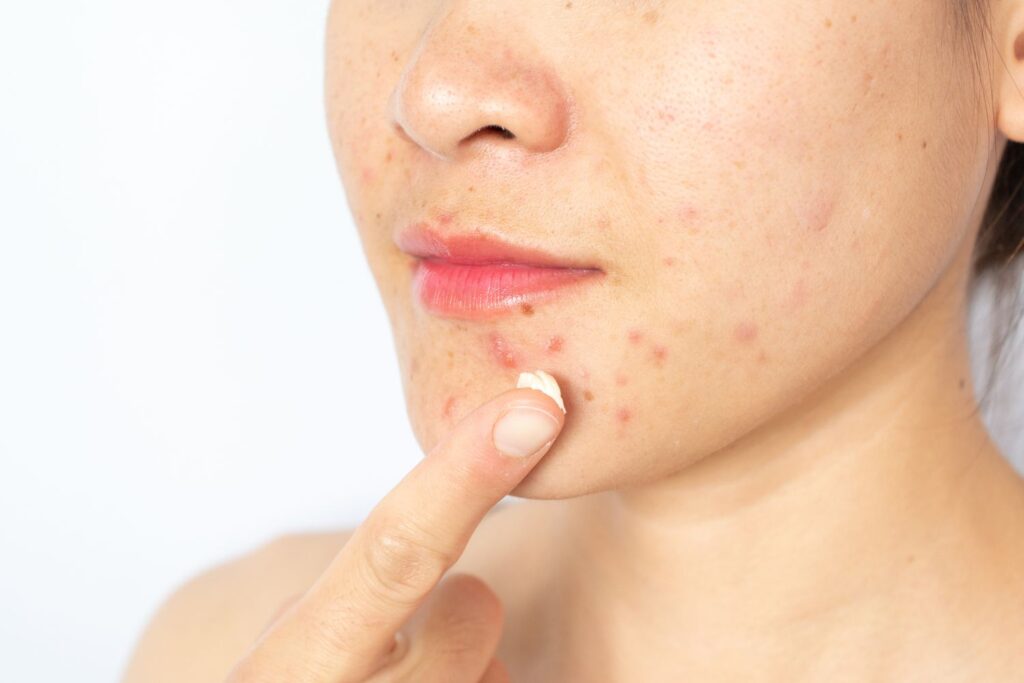Acne is a common skin condition that affects individuals across various age groups, leading to stress, discomfort, and a search for practical solutions. Achieving acne-free skin is a multi-faceted journey that involves understanding the root causes, adopting a suitable skincare regimen, and making lifestyle changes. This comprehensive guide explores practical steps and strategies to combat acne and embrace clear, healthy skin.
Understanding Acne
Before diving into solutions, it’s crucial to understand what acne is and why it occurs. Acne develops when hair follicles become clogged with oil and dead skin cells, leading to whiteheads, blackheads, or pimples. Several factors contribute to acne, including hormonal changes, diet, stress, and genetics. Recognizing the specific triggers that affect your skin is the first step towards managing acne effectively.
Skincare Routine for Acne-Prone Skin
Gentle Cleansing
Start with a gentle cleanser to remove dirt, excess oil, and impurities without stripping the skin’s natural moisture. Opt for products formulated for acne-prone skin, free from harsh ingredients that can irritate or exacerbate acne.
Exfoliation
To eliminate dead skin cells and unclog pores, exfoliate two to three times each week. Choose chemical exfoliants like salicylic or glycolic acid over physical scrubs, as they are less likely to irritate acne-prone skin.
Moisturizing
Hydration is critical, even for oily skin. Lightweight, non-comedogenic moisturizers prevent skin from overproducing oil, a typical response to dehydration that can worsen acne.
Sun Protection
Sunscreen is essential to protect acne-prone skin from UV damage, which can lead to hyperpigmentation and scars. Look for oil-free and non-comedogenic sunscreens to avoid clogging pores.
Lifestyle Changes for Clear Skin
Diet and Hydration
What you eat affects your skin. A diet rich in fruits, vegetables, lean proteins, and whole grains can promote healthy skin. Foods high in sugar and dairy have been linked to acne in some people. Staying hydrated is equally important, as water helps flush toxins from the body and maintain skin health.
Stress Management
Stress can trigger or worsen acne by increasing cortisol levels, boosting oil production. Include stress-relieving activities in your everyday routine, such as yoga, meditation, or physical activity.
Sleep
Adequate sleep is vital for skin health. During sleep, the body repairs itself, including the skin. Aim for 7-9 hours of sleep daily to support skin rejuvenation.
Medical Treatments
For persistent acne, consult a dermatologist. Prescription medications, topical treatments, or procedures like chemical peels, laser therapy, and microdermabrasion can offer significant improvements. Hormonal treatments may be an option for those whose acne is driven by hormonal imbalances.
Conclusion
Achieving acne-free skin is a journey that combines proper skincare, lifestyle adjustments, and possibly medical interventions. Because every person has a unique kind of skin, what suits one person could not suit another. Patience and consistency are key. By understanding your skin and its needs, you can develop a personalized approach to combat acne and reveal clear, radiant skin.


